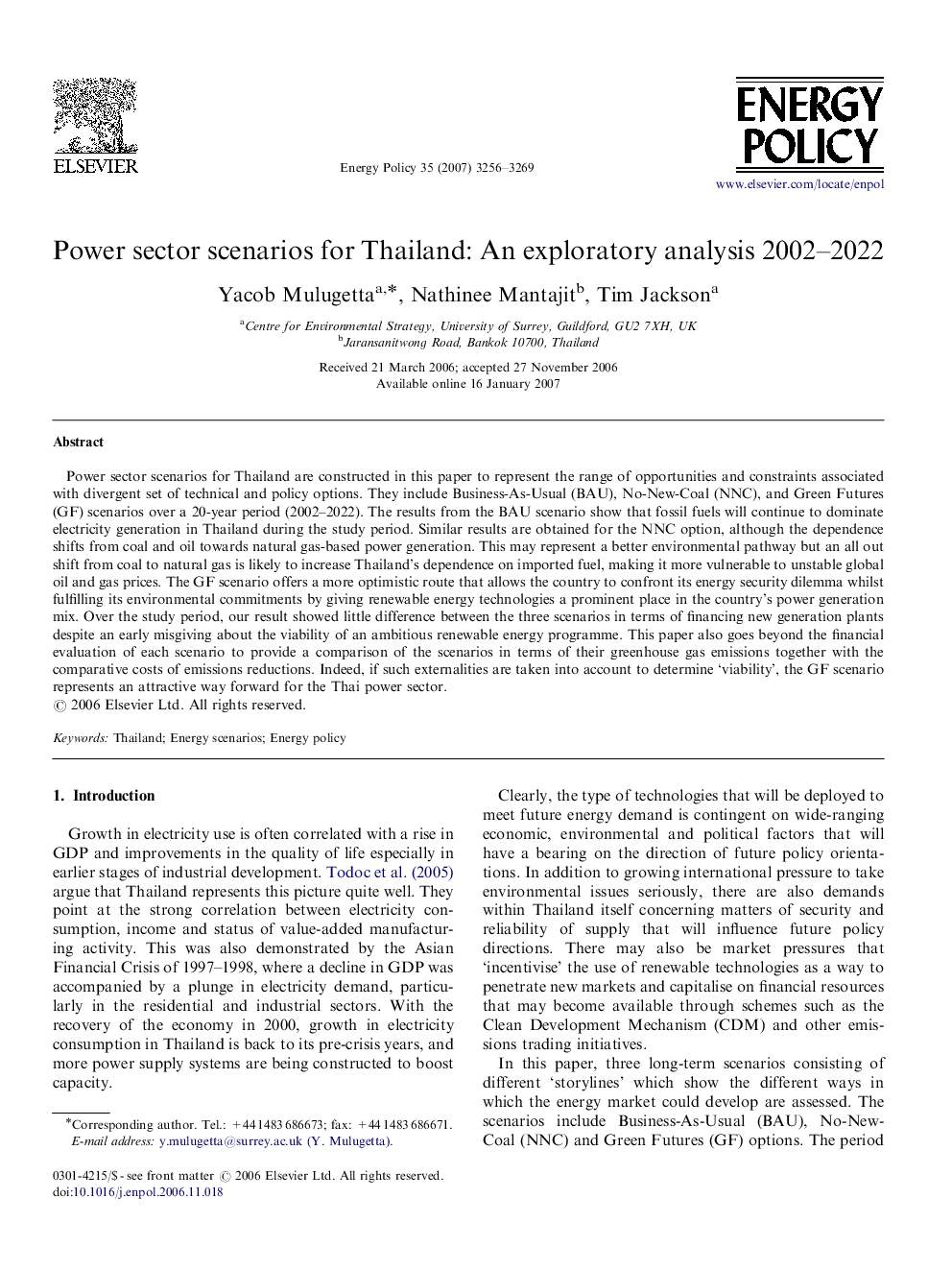| Article ID | Journal | Published Year | Pages | File Type |
|---|---|---|---|---|
| 994435 | Energy Policy | 2007 | 14 Pages |
Power sector scenarios for Thailand are constructed in this paper to represent the range of opportunities and constraints associated with divergent set of technical and policy options. They include Business-As-Usual (BAU), No-New-Coal (NNC), and Green Futures (GF) scenarios over a 20-year period (2002–2022). The results from the BAU scenario show that fossil fuels will continue to dominate electricity generation in Thailand during the study period. Similar results are obtained for the NNC option, although the dependence shifts from coal and oil towards natural gas-based power generation. This may represent a better environmental pathway but an all out shift from coal to natural gas is likely to increase Thailand's dependence on imported fuel, making it more vulnerable to unstable global oil and gas prices. The GF scenario offers a more optimistic route that allows the country to confront its energy security dilemma whilst fulfilling its environmental commitments by giving renewable energy technologies a prominent place in the country's power generation mix. Over the study period, our result showed little difference between the three scenarios in terms of financing new generation plants despite an early misgiving about the viability of an ambitious renewable energy programme. This paper also goes beyond the financial evaluation of each scenario to provide a comparison of the scenarios in terms of their greenhouse gas emissions together with the comparative costs of emissions reductions. Indeed, if such externalities are taken into account to determine ‘viability’, the GF scenario represents an attractive way forward for the Thai power sector.
